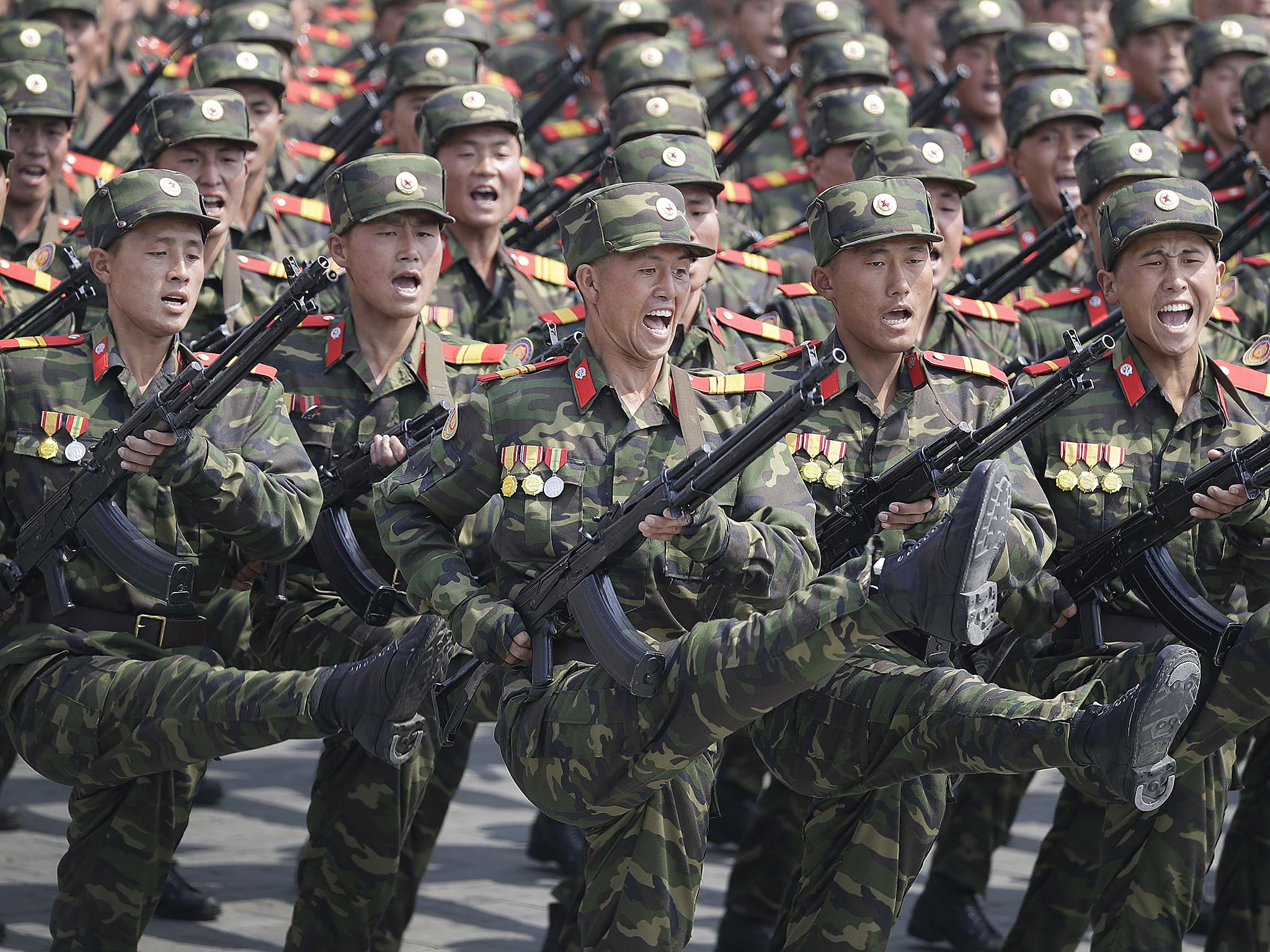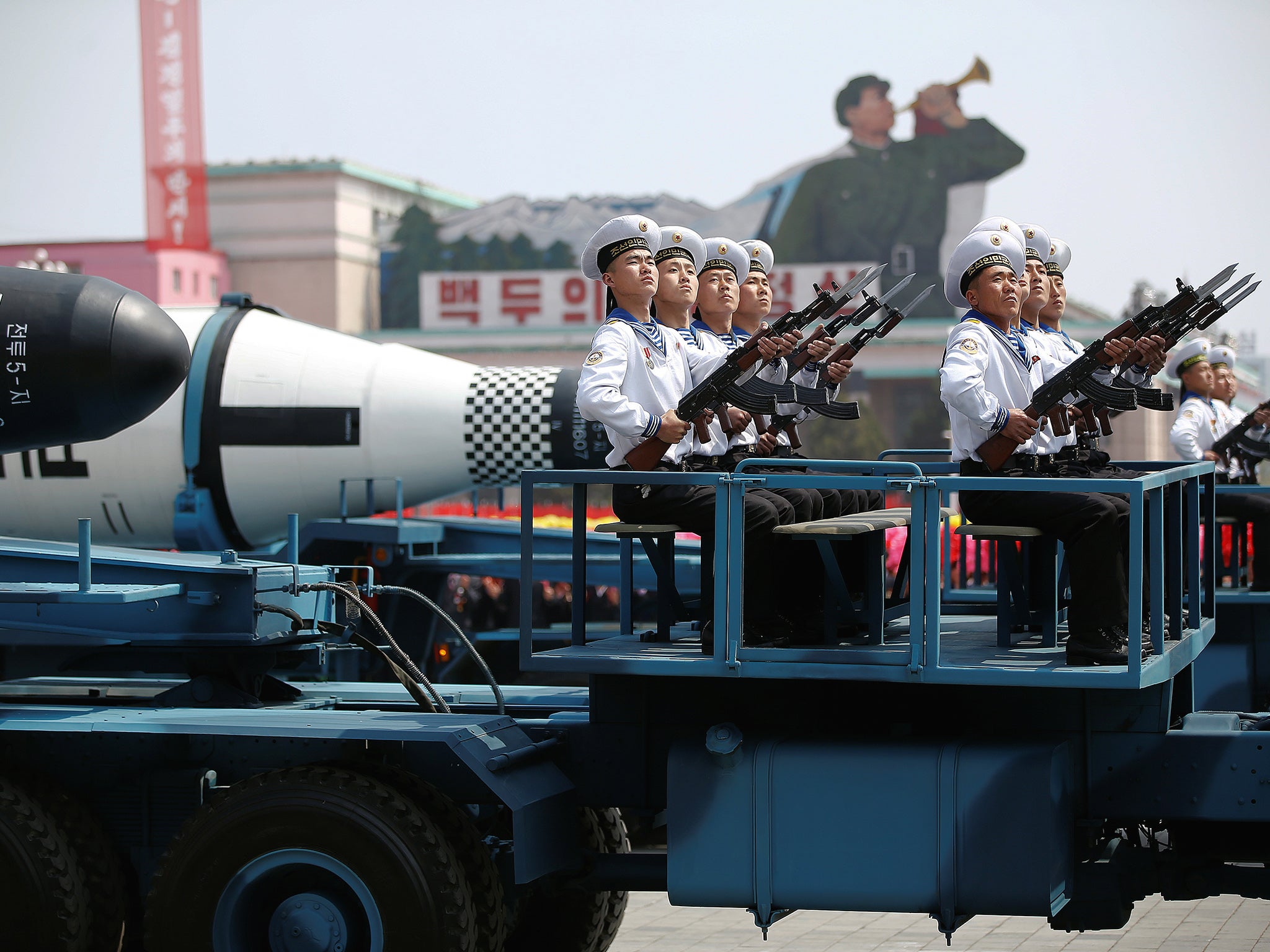US missile strike on North Korea 'would have cataclysmic consequences,' warns former ambassador to China
Former senator says President Trump is 'a macho kind of guy, which makes all of us a bit nervous'

A US missile strike on North Korea "would have absolutely cataclysmic, disastrous consequences," the former US ambassador to China has warned.
Max Baucus, who was the US ambassador to China for President Barack Obama, said it "should not be categorically discounted" that President Donald Trump could order an attack on the authoritarian state.
"After all President Trump ordered that strike on Syria, and he's a macho kind of guy, which makes all of us a bit nervous," the former senator told BBC Radio 4's Today Programme.
"But I'm sure that the Pentagon and state department, all his advisers have explained to him that a missile strike initiated by the United States at this time would have absolutely cataclysmic, disastrous consequences and I think he's wise enough not to want to have that on his watch."
North Korea conducted live-fire artillery drills and a US guided-missile submarine arrived in South Korea on Tuesday, as the Trump administration prepared what Mr Baucus called an "extraordinary" White House briefing for all 100 senators on the escalating nuclear threat.
They will be briefed by Secretary of Defence James Mattis, US Secretary of State Rex Tillerson, Director of National Intelligence Dan Coats and General Joseph Dunford.
"During the roughly 40 years I served in Congress I never remember a meeting of 100 members going to the White House on a national security issue," Mr Baucus said.
"I can only surmise the president is trying to set the stage for action he may take later, that may be diplomatic action, it might be military. It's extraordinary, I'm very surprised by this."
When asked if Mr Trump had called the meeting to capture a sense of theatre and support for military action, Mr Baucus cautioned: "That's possible but let's remember our president is quite theatrical anyway. He makes quite bold statements.
"That's his wont, that's his style, so I would discount that a bit."
He said the previous American policy of "strategic patience really hasn't worked very well," and said the US had been "a bit too patient while Kim Jong-un builds up his nuke and his missiles and China hasn't done very much."
"It is proper to ramp up the pressure," he added.
Asked whether the "big carrot" could be a face-to-face meeting with Mr Trump, Mr Baucus said: "You know I think we're getting closer to that. That's a bit down the road yet.
"We have to start thinking about diplomacy much more seriously than we have in the past."
He said the US had made some progress with North Korean diplomacy under the Clinton administration, but that broke down after the 9/11 terror attacks during the Bush administration.
"But now is the time to think about sitting down. I would not rule it out."
He said previous US administrations had been afraid to sit down with the North Korean dictator over fears he would "use it to berate us, just to talk and outmanoeuvre us," but Mr Baucus said he thinks diplomatic negotiations have become much more important.
"It's better than the alternative, the alternative is a a missile strike from one or the other, and that is clearly is catastrophpic."
His opinion was shared by retired US army special forces colonel David S Maxwell, who previously told The Independent the US has a Massive Ordnance Penetrator (Mop) bomb, developed with North Korea's underground facilities in mind.
“There are many targets in the world buried deeply underground and the Mop was developed for that,” he said. “But I think you have to ask the question: Can a military action against North Korea not result in a catastrophic response by the North?”

Fears North Korea would mark the 85th anniversary of its military's founding with a nuclear test explosion or a ballistic missile launch proved unfounded. But the unpredictable Communist nation rattled its sabre all the same, staging its largest-ever artillery firing drill that served as a reminder of the threat it poses to US-allied South Korea.
The exercise in the area of east coast city of Wonsan involved 300 to 400 artillery pieces, South Korea's Yonhap news agency said. An official from Seoul's Defense Ministry couldn't confirm such details. Seoul lies only 25 miles from the demilitarised zone separating the two Koreas, well within artillery range.
Mr Trump has sent more US military assets to the region in a show of force while leaning on China to "properly deal" with its wayward ally's continued violations of UN sanctions.

"We are probably in one of the most challenging situations since the Cuban missile crisis," Senator John McCain, who joined Mr Trump for dinner on Monday night, told a congressional hearing on Tuesday, referring to the 1962 standoff with the Soviet Union that pushed the superpowers close to nuclear confrontation.
Mr McCain said a North Korean nuclear missile capable of striking an American city was "an imminent danger."
He said Mr Trump is "exploring all options" on North Korea and added that a pre-emptive strike "would be the last one."
North Korea routinely accuses the US of readying for an invasion, and threatens pre-emptive strikes to stop it.
The state's news agency reported that unnamed Foreign Ministry spokesman said the US administration's policy to maximise pressure on North Korea was "little short of lighting the fuse of total war".
Additional reporting by AP
Join our commenting forum
Join thought-provoking conversations, follow other Independent readers and see their replies
0Comments